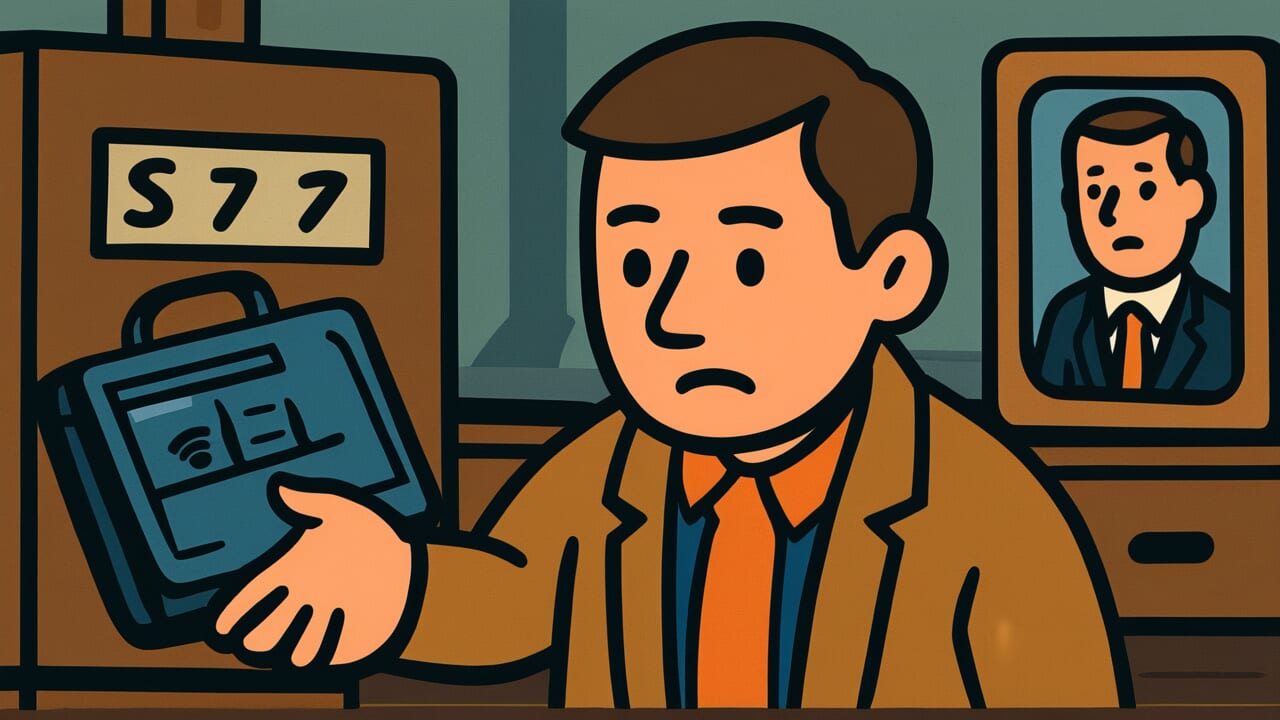How to Read “The thief hates the master”
Nusubito wa shujin wo nikumu
Meaning of “The thief hates the master”
This proverb shows a twisted side of human psychology. When someone does something wrong, they often hate the person who points it out.
Normally, people who do bad things should reflect on their actions. They should thank those who correct them. But in reality, something different happens.
When someone points out their wrongdoing, they often resent that person instead. They blame the messenger rather than facing their own mistakes.
This saying applies to many situations. An employee caught doing something dishonest might hate their boss for calling them out. Instead of feeling grateful for the correction, they think “That person embarrassed me.”
The same happens when someone breaks a rule and gets caught. They often turn the person who reported them into an enemy.
This proverb captures human weakness perfectly. It remains relevant today as a reminder of how our minds can work against us.
The real lesson is this: when we make mistakes, the people who point them out are actually helping us. We should value their honesty, not resent it.
Origin and Etymology
The exact origin of this proverb is unclear. However, it was likely already in use during the Edo period.
Looking at the words themselves, “thief” refers to someone who does wrong. “Master” doesn’t just mean a household head or employer. It broadly refers to anyone in a rightful position or authority.
This expression reflects Japan’s feudal society. It comes from a time when master-servant relationships were clear and standards of right and wrong were well-defined.
What makes this proverb interesting is that it’s not really about stealing. It’s about human psychology at a deeper level.
The saying points out a distortion in the human heart. Someone who does wrong should feel ashamed. Instead, they hate the person who calls them out.
This proverb probably came from watching real human behavior over time. People noticed a pattern that kept repeating.
When wrongdoing is exposed, people tend to resent the person who exposed it. They find it easier than admitting their own fault.
This universal human tendency was captured in a simple, memorable phrase. That’s how “The thief hates the master” was born.
Usage Examples
- The person caught doing fraudulent accounting now resents the auditor who found it—truly “the thief hates the master”
- Yelling at a store clerk who stopped you from shoplifting is exactly “the thief hates the master”
Universal Wisdom
“The thief hates the master” teaches us about a dangerous defense mechanism in the human mind. Why does someone who does wrong hate the person who’s right?
The answer is simple but painful. Admitting our faults hurts too much.
Everyone wants to believe they’re a good person. Admitting we did something wrong feels like denying our own worth.
That’s why the person who points out our mistakes becomes threatening. Our mind transforms them into an enemy.
To escape our own guilt, we make the other person the villain. This way, we can keep our mental balance. It’s a sad aspect of human nature.
This proverb has survived through centuries because this psychology is timeless. From ancient times to today, people have struggled with admitting their mistakes.
Throughout history, people who speak the truth are often disliked or even persecuted. This proves what the proverb teaches us.
But there’s hope in this saying too. By understanding this mental distortion, we can see ourselves more clearly.
We can ask ourselves, “Am I hating someone who’s actually right?” Having that courage is the first step toward real growth.
When AI Hears This
The strange phenomenon of thieves hating their masters can be explained as a malfunction in the brain’s self-justification system. Cognitive dissonance theory shows that holding two conflicting beliefs creates intense discomfort.
The conflict here is between the act of stealing and the belief that “I’m not a bad person.” To resolve this tension, the brain automatically creates a story: “The victim deserved it.”
Interestingly, this psychological mechanism gets stronger with the severity of the wrongdoing. Psychologist Festinger’s research shows that bigger crimes require stronger justifications.
For example, stealing a small amount might be dismissed as “a moment of weakness.” But stealing a large sum triggers more elaborate justifications. “That master was rich and arrogant.” “I was unfairly underpaid.”
The victim’s supposed faults multiply in the thief’s mind.
What’s remarkable is that this justification happens after the fact. Before the theft, there was no hatred toward the master. But after stealing, the brain automatically searches for reasons to hate.
It even rewrites memories to support this narrative.
The perpetrator doesn’t even realize they’ve created this hatred retroactively. This shows that human memory and emotion prioritize protecting self-image over preserving facts.
Lessons for Today
This proverb teaches us two important things. First, when someone points out our mistakes, we need the courage to pause before resenting them.
Ask yourself: “Am I about to hate someone who’s actually right?” This self-awareness helps you catch the distortion in your thinking.
People who correct you might actually care about your growth. They’re valuable, not enemies. Being able to accept their words shows real strength.
Second, this proverb teaches us how to point out others’ mistakes. Knowing about this psychological tendency, we understand that harsh criticism won’t work.
Simply hitting someone with the truth won’t reach their heart. We need to find ways to correct people without hurting their dignity or triggering their defenses.
In modern society, we see people called out for mistakes on social media constantly. But cornered people tend to feel hatred rather than remorse.
Instead of wielding righteousness like a weapon, we should leave room for people to realize their mistakes on their own. This kindness is what truly helps people change for the better.



Comments